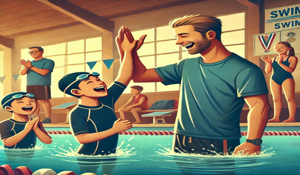 A growing parenting trend is raising alarm across the country: the rise of “Lawnmower Parents”. Lawnmower parents repeatedly and consistently endeavor to remove any and all potential struggles that their children may face. While these parents typically have good intentions, this pattern of behavior leaves the children tremendously unprepared to face even the smallest obstacle when they head off to college and later as adults.
A growing parenting trend is raising alarm across the country: the rise of “Lawnmower Parents”. Lawnmower parents repeatedly and consistently endeavor to remove any and all potential struggles that their children may face. While these parents typically have good intentions, this pattern of behavior leaves the children tremendously unprepared to face even the smallest obstacle when they head off to college and later as adults.Rise of the Lawnmower
The term first made waves in 2016 when a college professor noticed more and more parents were contacting college professors on behalf of their children. Parents were requesting extensions or expressing concerns, all things college students have always been expected to do on their own. These "lawnmower parents" are called such because of their tendency to remove or “mow down” any obstacle their child may potentially face. These parents take the protective nature of helicopter parents, named for their tendency to hover around their children, further to greater detriment to their children’s well being.
How Lawnmower Parents Hurt Their Children
Lawnmower parenting teaches children to question their own abilities. Repeatedly doing everything for your child tells them that you believe they aren’t capable of doing the task themselves. These children are not presented with opportunities to learn effective communication skills and thus suffer from communication difficulties. Also, these children often lack motivation to do tasks because they have learned that their parents will take care of it for them. These children suffer from diminished self-efficacy. They panic and shut down at the first sign of failure. More alarmingly, these students learn to blame others, such as teachers, professors, peers, and their parents, when things go wrong. Later in life, these students may internalize these beliefs and suffer from serious mental health issues.
How to Stop Being a Lawnmower
There are a few things parents can do to turn this around or to prevent themselves from falling into this trap in the future. Parents can recognize that children don’t learn exclusively from direct instruction. Children learn from experiences, so it is vital that your child has the opportunity to experience the ups and downs of daily life. Children need to experience failure so that they may develop the necessary resiliency to deal with it as adults. Children need to learn self-advocacy skills.
Parenting is no easy task, and there certainly no one right way to do it. There are however things that can be done to help children become functioning adults.





